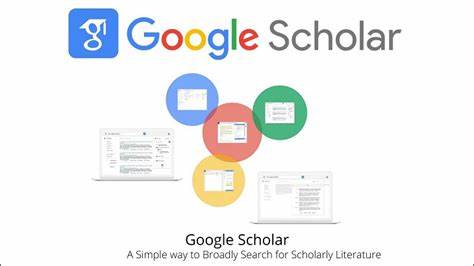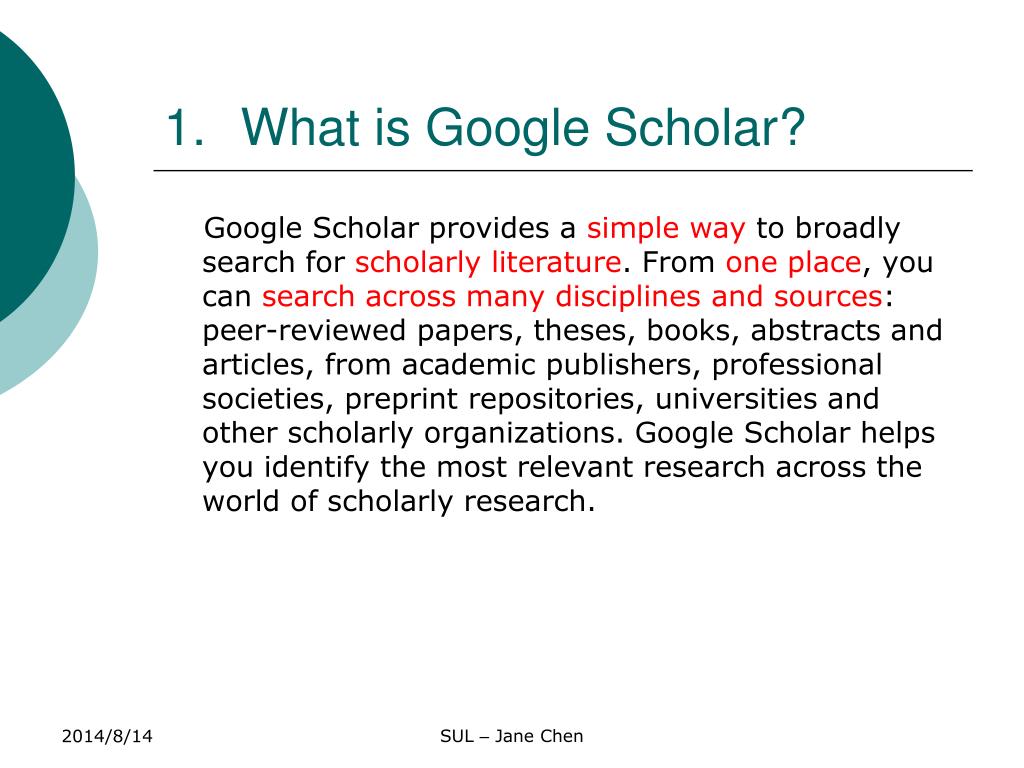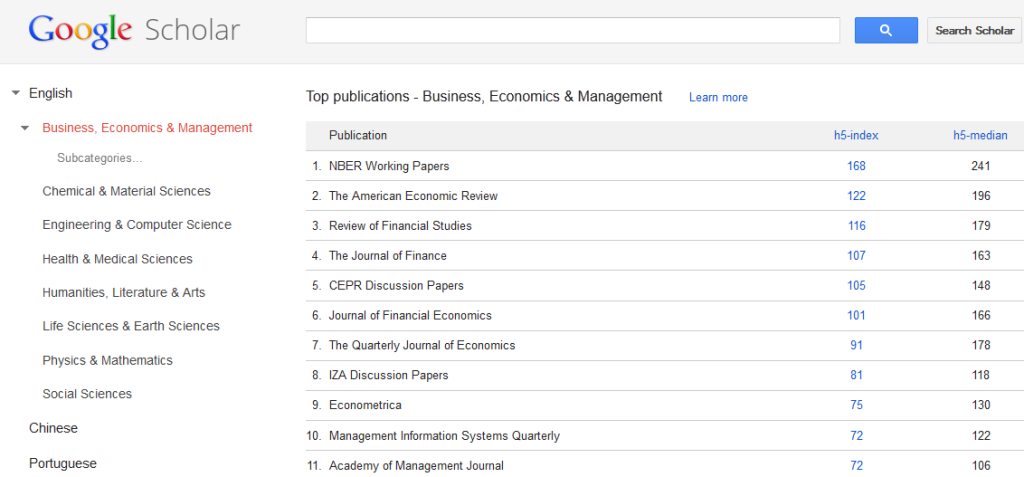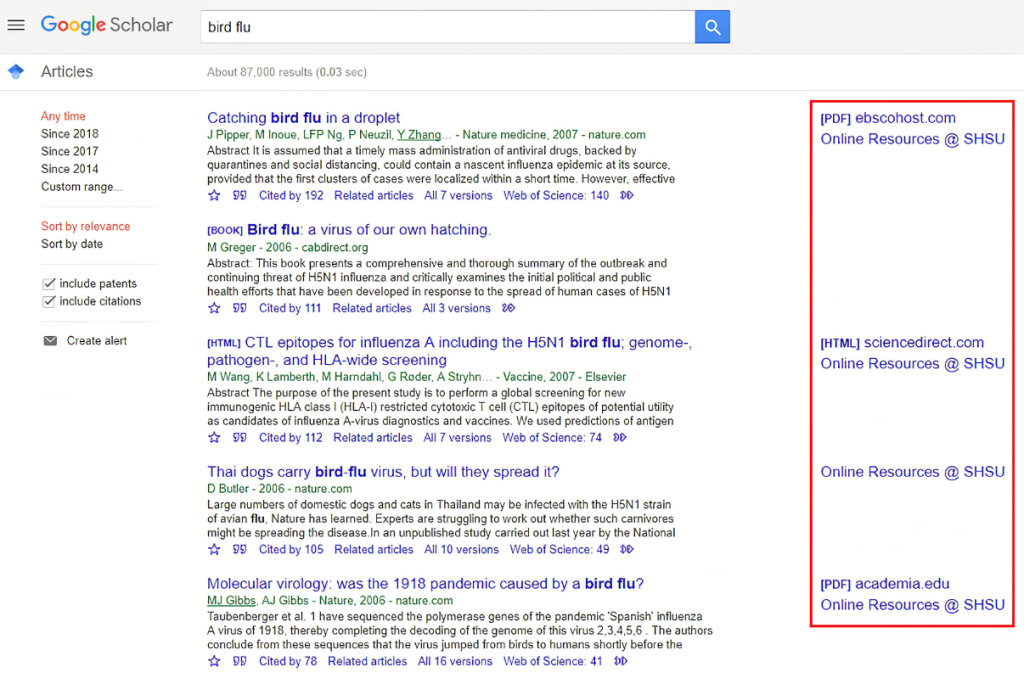Google Scholar is a free academic search engine that provides access to a vast collection of scholarly literature, including peer-reviewed papers, theses, books, and other academic sources. Developed and maintained by Google, this powerful tool allows researchers, students, and professionals to search for and discover relevant academic information from a wide range of disciplines.

Table of Contents
Why is Google Scholar Important for Research?
Google Scholar is a crucial resource for academic research and knowledge discovery. It enables users to access high-quality, peer-reviewed content from a variety of sources, including academic journals, conference proceedings, and institutional repositories. By providing a comprehensive and searchable database of scholarly literature, Google Scholar empowers researchers to stay informed, conduct in-depth literature reviews, and build upon the work of others in their respective fields.
Target Audience for Google Scholar
Google Scholar is primarily designed for the academic and research community, including:
- University students and faculty members
- Researchers and scholars
- Librarians and information professionals
- Professionals in various industries who require access to academic literature
- Anyone interested in exploring and staying up-to-date with the latest scholarly research
Key Features and Benefits
Comprehensive Search: Accessing a Wide Range of Academic Literature
Google Scholar allows users to search across a vast collection of academic resources, including journal articles, books, theses, conference papers, and more. This comprehensive coverage enables researchers to discover relevant and high-quality content from a wide range of academic disciplines.
Advanced Search Options: Filtering Results by Author, Publication, Date, etc.
Google Scholar offers advanced search features that allow users to refine their searches by various criteria, such as author, publication title, date range, and more. This functionality helps researchers to efficiently locate the most relevant and up-to-date information for their specific needs.
Citation Export: Exporting Citations in Various Formats
Google Scholar provides the ability to export citations in multiple formats, including APA, MLA, Harvard, and others. This feature simplifies the citation management process and helps researchers to properly acknowledge the sources they have used in their work.
Scholarly Articles and Books: Accessing Peer-Reviewed Research
Google Scholar’s focus on scholarly content ensures that users can access high-quality, peer-reviewed research articles and books. This emphasis on academic rigour is essential for researchers and students to build a strong foundation of knowledge.
Thesis and Dissertations: Finding In-Depth Research
In addition to journal articles and books, Google Scholar also indexes theses and dissertations, providing access to extensive and detailed research conducted by graduate students and academics.

How to Use Google Scholar Effectively
Basic Search Techniques: Keyword and Phrase Searching
The most straightforward way to use Google Scholar is through simple keyword or phrase searches. Users can enter their search terms and Google Scholar will return relevant scholarly results.
Advanced Search Tips and Tricks: Using Boolean Operators and Filters
To refine their searches, users can leverage Google Scholar’s advanced search features, such as the use of Boolean operators (e.g., AND, OR, NOT) and various filters (e.g., publication date, author, source type).
Customizing Your Search Preferences
Google Scholar allows users to customize their search preferences, such as setting default search preferences, managing their library, and creating alerts for new relevant content.
Saving and Organizing Search Results
Users can save their search results and organize them into personal libraries, making it easier to revisit and reference specific scholarly sources in the future.
Understanding Google Scholar’s Algorithm
How Google Scholar Ranks Search Results
Google Scholar’s ranking algorithm takes into account various factors, such as the relevance of the content, the credibility and authority of the source, and the citation count of the scholarly work.
Factors Affecting Search Results
The accuracy and relevance of Google Scholar’s search results can be influenced by factors like the quality and availability of the indexed content, the user’s search queries, and the algorithm’s ability to prioritize the most relevant information.
Tips for Improving Search Results
To enhance the effectiveness of Google Scholar searches, users can employ strategies such as using precise keywords, leveraging advanced search operators, and understanding the limitations of the search engine’s coverage.
Google Scholar and Academic Research
Identifying Reliable Sources
Google Scholar’s emphasis on scholarly content helps researchers to identify high-quality, peer-reviewed sources that are essential for building a robust academic foundation.
Citing Sources Accurately
The citation export features in Google Scholar facilitate proper attribution and referencing of sources, which is crucial for maintaining academic integrity and avoiding plagiarism.
Avoiding Plagiarism
By providing access to a wide range of scholarly literature, Google Scholar empowers researchers to thoroughly explore and understand the existing research, reducing the risk of unintentional plagiarism.

Google Scholar and Student Research
Finding Relevant Research Papers
Google Scholar enables students to efficiently locate and access relevant academic literature, which is essential for completing assignments, writing research papers, and staying informed about the latest developments in their field of study.
Writing Effective Research Papers
The ability to access high-quality, peer-reviewed sources through Google Scholar supports students in crafting well-researched and well-supported academic papers.
Using Google Scholar for Assignments and Projects
Integrating Google Scholar into the research process can help students to gather authoritative information, strengthen their arguments, and produce more compelling and credible academic work.
Limitations of Google Scholar
Potential Bias in Search Results
While Google Scholar strives to provide comprehensive and unbiased search results, the algorithm may be influenced by factors such as language, geographical location, and publisher preferences, potentially leading to some bias in the information displayed.
Access Restrictions to Certain Content
Google Scholar’s search index may not include all scholarly content, as some publications and databases may have access restrictions or may not be indexed by the search engine.
Challenges in Finding Specific Information
Depending on the user’s search query and the availability of relevant content, Google Scholar may not always return the most accurate or comprehensive results, especially for highly specialized or niche research topics.

Tips for Maximizing Google Scholar
Effective Search Queries
Crafting well-structured search queries, using appropriate keywords and Boolean operators, can significantly improve the relevance and accuracy of Google Scholar’s search results.
Utilizing Google Scholar’s Advanced Features
Leveraging Google Scholar’s advanced search options, such as filtering by publication date, author, or source type, can help users to refine their searches and find the most relevant information.
Staying Updated with Google Scholar’s Changes
As Google Scholar continues to evolve and improve its features, users should stay informed about any updates or changes to the search engine’s functionality to maximize its effectiveness.
Alternative Academic Search Engines
Comparing Google Scholar to Other Search Engines
While Google Scholar is a highly useful tool, there are other academic search engines, such as Microsoft Academic, Web of Science, and Scopus, that may offer unique features or coverage of specific research areas.
Choosing the Right Search Engine for Your Needs
Depending on the user’s research requirements, field of study, and access to institutional subscriptions, different academic search engines may be more suitable for their specific needs.
Get Started with Google Scholar
To get started with Google Scholar, users can simply visit the website at www.scholar.google.com. The platform is freely accessible and does not require any sign-up or registration process.
Frequently Asked Questions
Q: What types of content can I find on Google Scholar?
A: Google Scholar primarily indexes scholarly literature, including peer-reviewed journal articles, conference papers, theses, dissertations, books, and other academic sources.
Q: How do I narrow down my Google Scholar search results?
A: You can use advanced search features such as keywords, phrases, Boolean operators (AND, OR, NOT), and filters (e.g., publication date, author, source type) to refine your search and find more relevant information.
Q: Can I access full-text articles through Google Scholar?
A: Google Scholar provides links to full-text articles, but the availability of the full-text content may depend on your institutional subscriptions or open access policies.
Q: How do I cite sources found on Google Scholar?
A: Google Scholar provides citation export options in various formats, such as APA, MLA, and Harvard, to help you properly cite the sources you’ve used in your research.
Q: Is Google Scholar free to use?
A: Yes, Google Scholar is a free academic search engine that can be accessed by anyone with an internet connection.

Conclusion
Google Scholar is a powerful and comprehensive academic search engine that has become an indispensable tool for researchers, students, and professionals across various fields. By providing access to a vast collection of scholarly literature, advanced search capabilities, and citation management features, Google Scholar empowers users to conduct thorough and efficient academic research, identify reliable sources, and engage in knowledge-building activities.
Whether you’re a university student working on a research paper, a faculty member staying up-to-date with the latest developments in your field, or a professional seeking to deepen your understanding of a particular topic, Google Scholar can be a valuable resource to support your academic and research endeavours. By leveraging the features and capabilities of this powerful search engine, you can maximize the effectiveness of your research process and contribute to the advancement of knowledge in your area of interest.
So, if you haven’t already, we encourage you to explore the world of Google Scholar and start your academic research journey with this invaluable tool.




